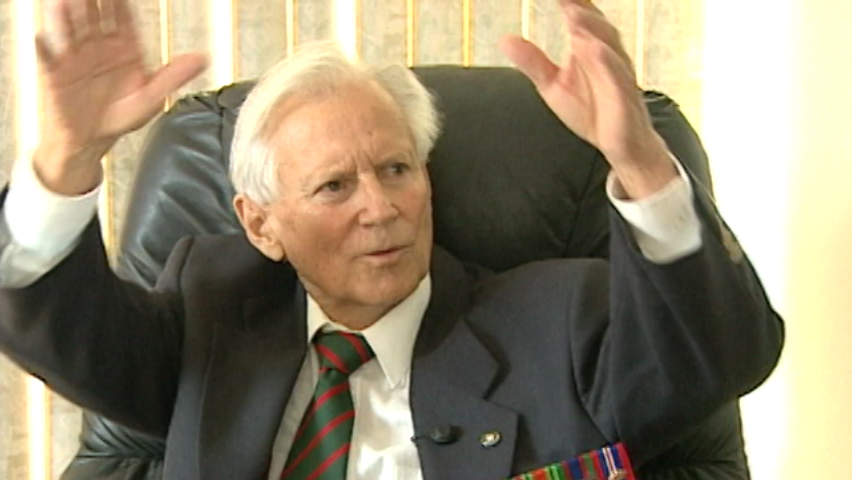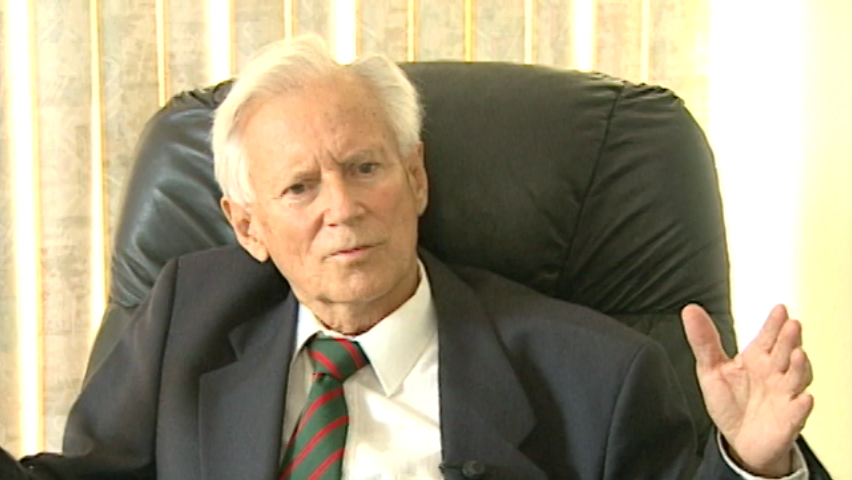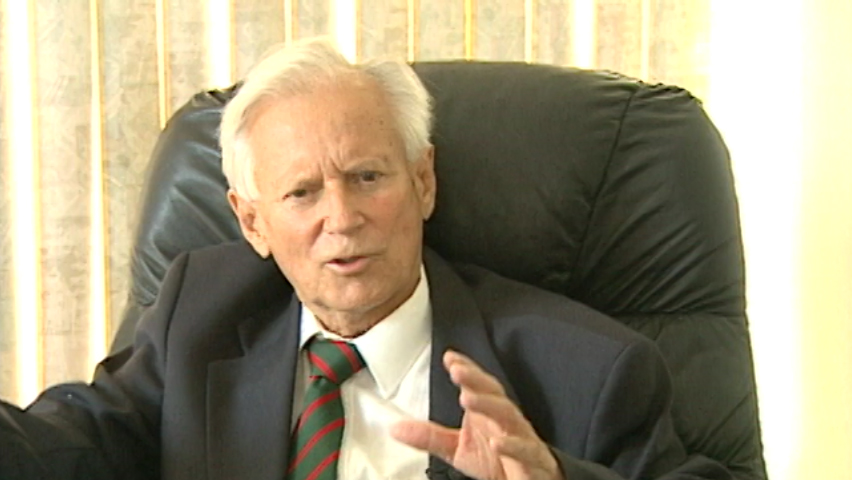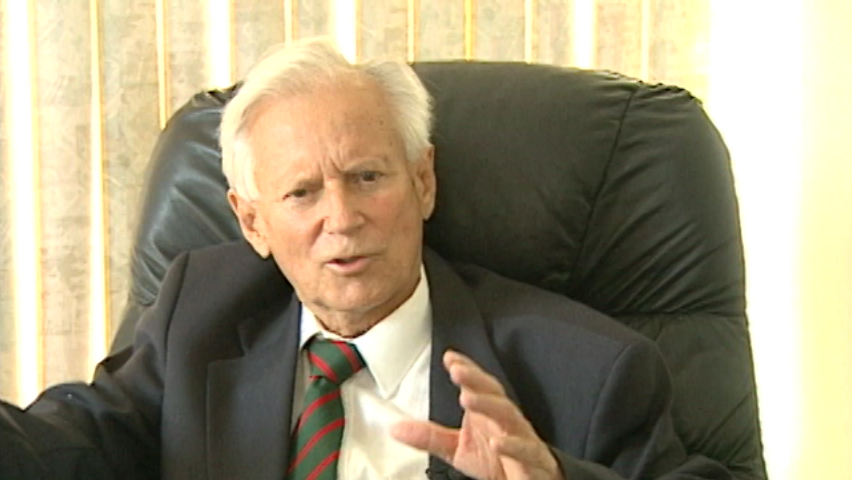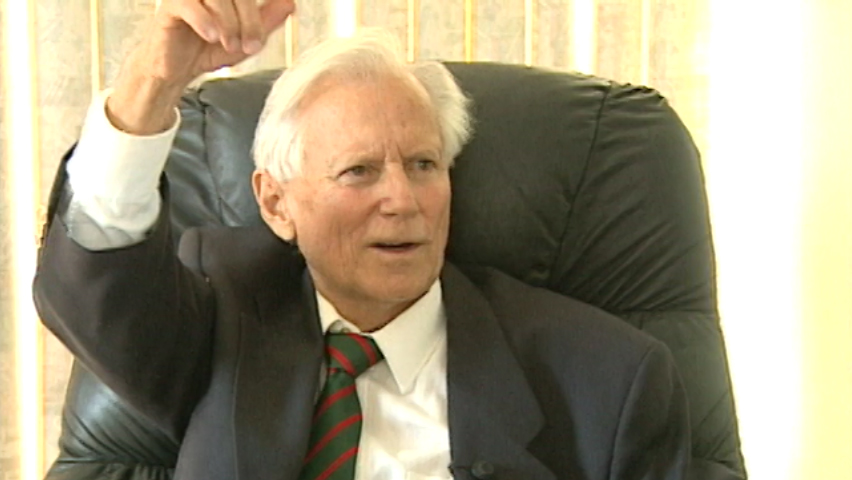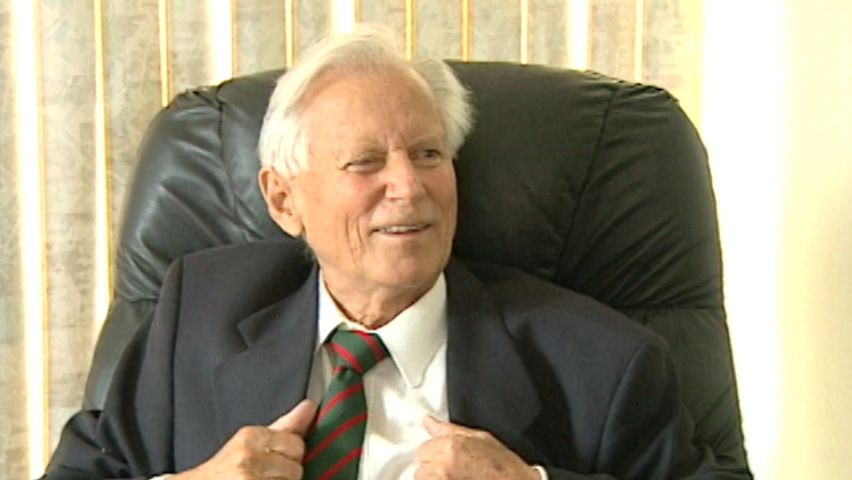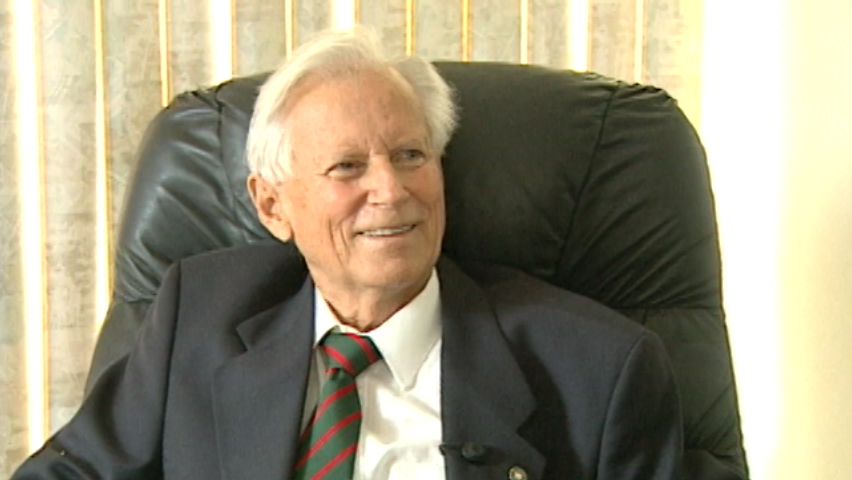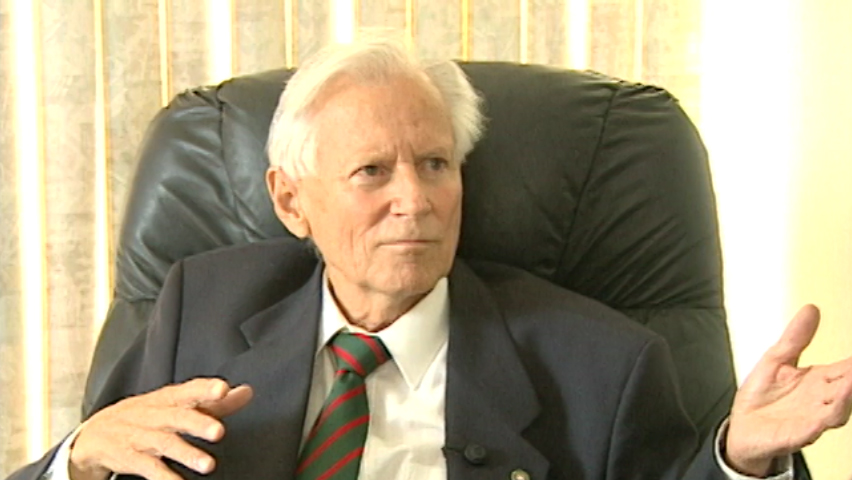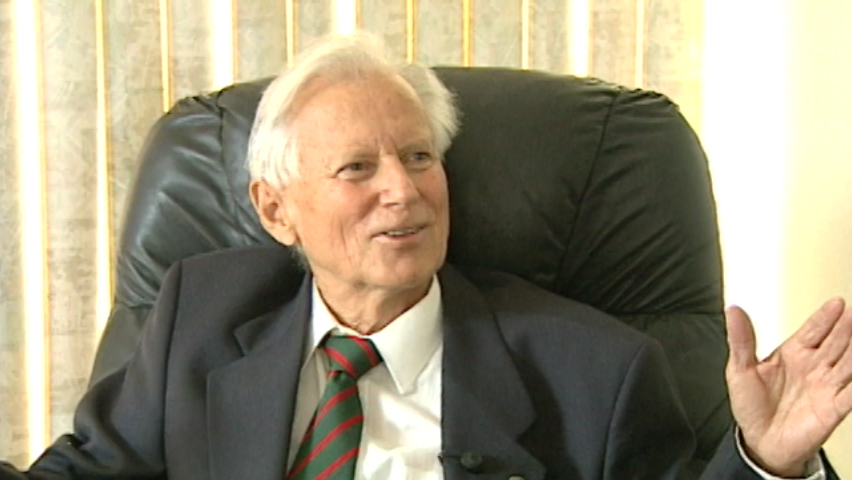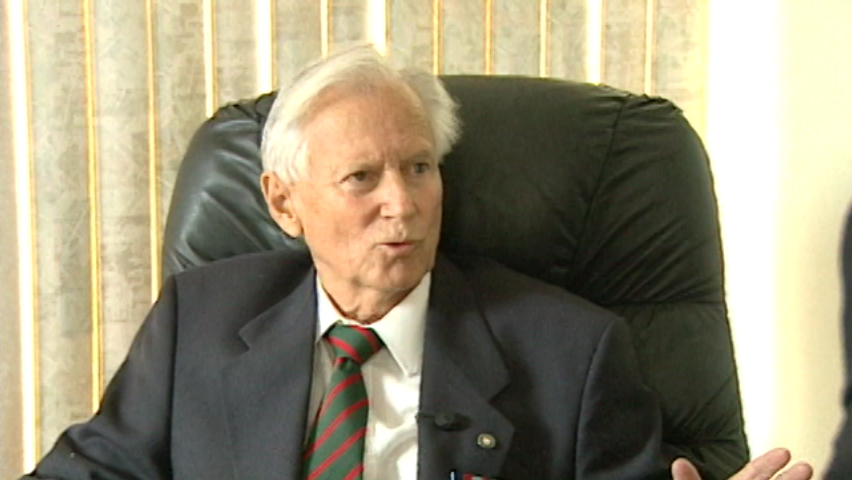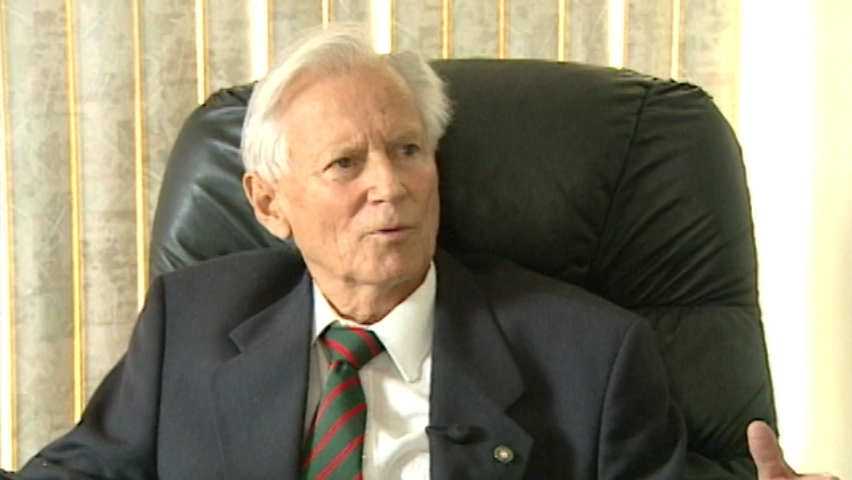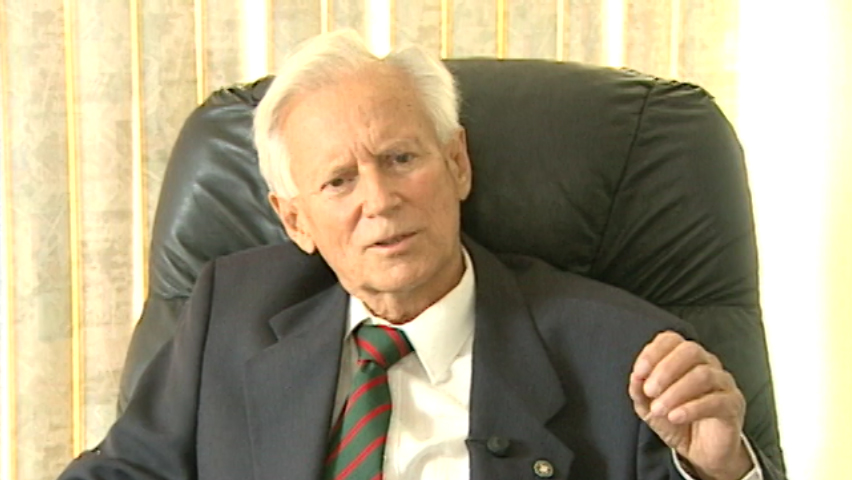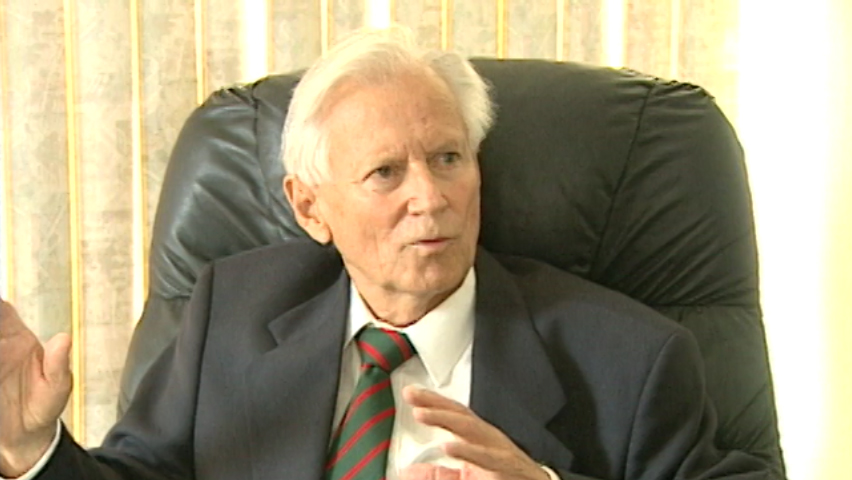Hope Returns and Freedom
Heroes Remember
Hope Returns and Freedom
Transcript
Description
Mr. Castonguay recalls fearing that the Japanese would kill the POW's should Japan be invaded. Meanwhile, they could see the Americans bombing a nearby city every night which gave them hope that they would soon be saved.
Bernard Castonguay
Bernard Castonguay was born in Montreal, Quebec on February 9, 1921. He was the fourth of eleven children. His father worked for CPR as a seam fitter. Mr. Castonguay left home at the age of sixteen to look for adventure. He worked as a lumberjack and on the railways. Unable to find work in 1940, Mr. Castonguay went to Quebec City and joined the Royal Rifles of Canada. He was then shipped to Gander, Newfoundland where he worked as a signalman and sentry. Afterwards, he went to St. John, NB. While in Hong Kong, Mr. Castonguay was captured by the Japanese and sent to a POW camp (Omeni) in Nagasaki, Japan to work in a coal mine. After his service, Mr. Castonguay worked with the Canadian National Institute for the Blind (CNIB) later becoming the Regional Director of CNIB. He also volunteered and worked with the Canadian Council for the Blind.
Meta Data
- Medium:
- Video
- Owner:
- Veterans Affairs Canada
- Duration:
- 02:14
- Person Interviewed:
- Bernard Castonguay
- War, Conflict or Mission:
- Second World War
- Location/Theatre:
- Japan
- Branch:
- Army
- Units/Ship:
- Royal Rifles of Canada
- Occupation:
- Signalman
Related Videos
- Date modified:



